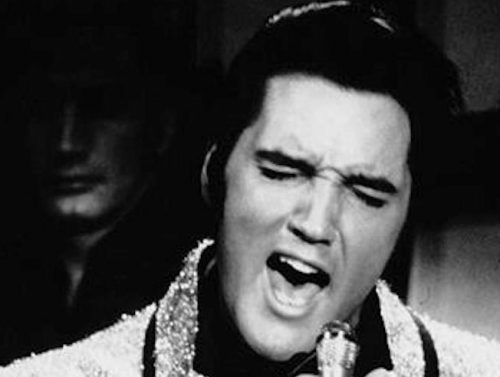 On July 31, 1969, Elvis Presley began a concert series in Las Vegas at a critical career juncture. Nine years earlier, following his stint in the army, he had traded the stage for the screen, opting to walk away from live performances and focus on moviemaking. But after acting in more than two dozen mostly forgettable movies, he grew tired of Hollywood and increasingly eager to reconnect with live audiences.
On July 31, 1969, Elvis Presley began a concert series in Las Vegas at a critical career juncture. Nine years earlier, following his stint in the army, he had traded the stage for the screen, opting to walk away from live performances and focus on moviemaking. But after acting in more than two dozen mostly forgettable movies, he grew tired of Hollywood and increasingly eager to reconnect with live audiences.
He had a lot to prove when he did. During his years away from the stage, the music world had been transformed by the arrival of acts like Bob Dylan and the Beatles. Meanwhile, Presley’s star had faded. Not only wasn’t he doing concerts but his records weren’t selling the way they had been. Granted, many artists would have been happy to have had the string of Top 40 hits he scored between 1964 and 1968, but he made it into the Top 10 only once during that period and had zero chart-toppers. Compare that with 1956 to 1963, when he had 17 #1 singles and enjoyed more than a dozen additional Top 10 hits.
Listen to “Blue Suede Shows” from Live 1969
As it turned out, though, he still had some tricks up his sleeve. In 1968, he starred in a TV special that is widely and justifiably seen as the beginning of a comeback. Then came the 1969 Las Vegas shows, his first concerts in nearly a decade, which left no doubt that he could still deliver. The sold-out performances, for audiences of 2,200, featured backing by an excellent five-piece band that included virtuoso guitarist James Burton. Also on stage were a full orchestra and two vocal groups, the Imperials and the Sweet Inspirations. The shows found Presley introducing a new single, “Suspicious Minds,” which would quickly become his 18th (and final) #1 record.
Listen to “Suspicious Minds” from Live 1969
Those concerts are the focus of Live 1969, a boxed set from 2019 that presents 11 consecutive dinner and midnight performances from near the end of the 57-show stint at Las Vegas’ International Hotel.
[These performances are a key part of the plot in the 2022 feature film, Elvis.]
The box presents the shows in their entirety, one on each of 11 discs. The package includes a 52-page booklet containing photos and quotes from Presley, his manager Colonel Tom Parker, and others. Though most of this material has been available in bits and pieces, four of the 11 shows have not been previously released in full, and two have been almost entirely unavailable until this set.
Related: Who did Elvis influence? Just about everyone.
Moreover, all of them have never been collected in one place before, though given the amount of repetition here, you could argue that boxing them together wasn’t an entirely good idea. Unlike, say, Bruce Springsteen, Presley wasn’t known for significantly varying his set lists or even his stage patter, and unlike, say, Bob Dylan, he wasn’t prone to rearranging his material. So what we have here are 11 very similar shows, which may be a bit much for casual fans. Thirteen songs appear in all 11 concerts and another four crop up seven to nine times each. Moreover, Presley’s self-deprecating monologues, which are permeated with corny jokes, reappear almost verbatim in one show after another.
Listen to “Rubberneckin'” from the 1969 Vegas shows
This is not to say that the concerts are identical or that serious fans won’t have fun identifying all the small departures from the script. In one show, Presley sings “Happy Birthday” to Burton; in another he cracks up listening to the Sweet Inspirations’ Cissy Houston’s soprano near the beginning of “Are You Lonesome Tonight?” and continues laughing throughout the song. There are also a few relative surprises on the set lists, such as Eddie Rabbitt’s “Inherit the Wind” and Lowell Fulson’s “Reconsider Baby,” each of which is performed only once; Willie Nelson’s “Funny How Time Slips Away,” which appears twice; Don Gibson’s “I Can’t Stop Loving You” (the Ray Charles hit), which shows up four times; and the Bee Gees’ “Words,” which Presley sings three times.
Related: The King’s comeback began in 1968. Here’s the backstory.
The songs that dominate the program include many of his early hits, among them rockers like “All Shook Up,” “Heartbreak Hotel,” “Hound Dog,” “Jailhouse Rock” and “Don’t Be Cruel” and ballads such as “Can’t Help Falling in Love” and “Love Me Tender.” Perhaps as a nod to the music world’s transformation during his Hollywood years, he adds a medley of the Beatles’ “Yesterday” and “Hey Jude” and offers a rare bit of social commentary via Mac Davis’ “In the Ghetto,” which shortly before these gigs had provided Presley with his biggest hit in four years.
Other frequently recurring numbers include covers of Del Shannon’s “Runaway” (once with Shannon in the audience) and Charles’ “I Got a Woman” and “What’d I Say.”
There are times when the orchestra plus band plus vocal groups add up to what feels like Vegas overkill and you wonder whether Presley has strayed too far from his early days, when his backup included just a bassist, lead guitarist and drummer; other times, Presley toys with lyrics in ways that make you suspect he thinks the whole proceeding is trivial and not to be taken seriously. (“Do you gaze at your doorstep and picture me there?” becomes “Do you gaze at your forehead and wish you had hair?”). But this is not the overweight and directionless Presley who would self-destruct a few years later. Here, he is fully engaged, consistently in fine voice, and clearly having a ton of fun.
“He never once lost [the audience],” wrote Peter Guralnick in Careless Love, the second volume of his masterful two-part Presley biography. “He had them in the palm of his hand. It was a triumph of the rarest sort, a triumph of class, in which, finally, he was able to achieve the validation he had always wanted but never explicitly sought—and strictly on his own terms.”
Indeed. As Presley told music reporter Ray Connolly, “We didn’t decide to come back here for the money…I’ve always wanted to perform on the stage again for the last nine years, and it’s been building up inside of me since 1965 until the strain became intolerable…I don’t think I could have left it much longer.”
These recordings strongly suggest that he meant every word.
Listen to Elvis telling his own story

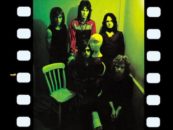
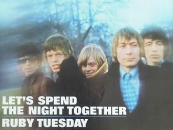
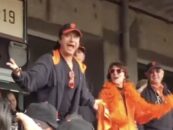
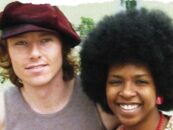

No Comments so far
Jump into a conversationNo Comments Yet!
You can be the one to start a conversation.